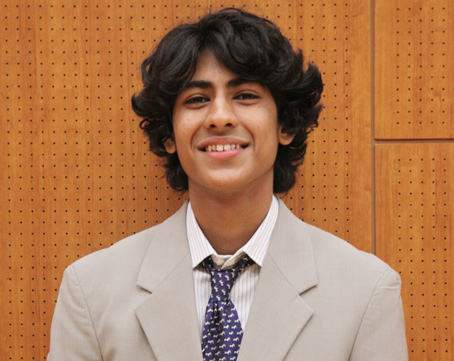
President of the General Assembly : Ruhaan Mahindru
Two dangers constantly threaten the world: order and disorder.
- Paul Valery
Dear delegates and MUN directors,
The 21st century political landscape is plagued by one overwhelming dilemma: the ambition of national interests versus the need to prioritize international synergy. From the Ottoman Sultanate to the German Reich, dangerously powerful empires have risen and fallen in their quest to achieve global dominance, yet the world has never truly experienced a peaceful international order.
So, the obvious question arises- can nations afford to persist on the path of self-interest, or has the concept of multilateral integration become an overwhelming necessity?
In today’s increasingly globalized and interdependent geopolitical framework, unilateral approaches to policy can have devastating repercussions. Unilateralism is a political approach that underlines that states shall act without regard for the interests of other states, and often without their support. From a social, economic and political perspective unilateral action has very rarely witnessed any productive success. In fact, the imposition of a single nation’s policies towards tackling complex geopolitical issue often results in the general disruption of diplomatic efforts, undermining global stability.
Notably, the disparity of power between states has led global superpowers, such as the United States of America and Russia, to act independently of collective efforts. A stark example of the perils of unilateralism is the American invasion of Iraq in 2003; while failing to provide any substantial evidence for the presence of Weapons of Mass Destruction, this event utterly disregarded international agreement, threw Iraq into disarray, and led to protracted conflict, significant casualties, and the emergence of extremist forces. Likewise, the unilateral trade tariff disputes between the USA and China have led to the disruption of global supply chains. Hence, it is abundantly clear that the historical practice of independent action poses a significant threat to true international peace.
Multilateral integration is the essential balance between international collaboration and compromise. From the European Union and its integral construct of neofunctionalism to the United Nation’s commitment to collective efforts and dialogue towards the pursuit of peace, human rights, and sustainable development, supranational organizations are serving as the basis for coordinated policy. Nonetheless, as declared in the Environment of Peace report, there is still a dire need for states to adopt an approach that is ‘deliberately inclusive.’ On an international scale, this evolves in the form of increased participation and value of the interests of smaller nations, whereas on a community level, states must ensure youth, women, indigenous peoples and other traditionally sidelined groups are provided with outlets to impact policy.
Currently, two-thirds of the world’s ocean surfaces are being damaged by illegal fishing and pollution from mineral extraction; The outcomes of COP 26 were alarmingly distant from the required efforts to mitigate the impact of climate change; The once golden concept of nuclear disarmament is today but a fleeting dream; Legal frameworks governing the use of outer space are effectively outdated; The UN’s most powerful body, the Security Council, stood powerless at the Russia invasion of Ukraine. In this 21st century landscape, the inadequacy of current global governance is becoming extremely apparent. Ergo, today we stand at the helm of a world-transforming decision: What world do we want to live in? How do we truly achieve multilateralism in all facets of global politics? Are such changes even possible?
Delegates, these questions are yours to answer. Let DAIMUN 2023 be a grand stage of metamorphosis, where the curtains rise and the script of change unfolds.
Warm Regards,
Ruhaan Mahindru
President of the General Assembly
DAIMUN 2023